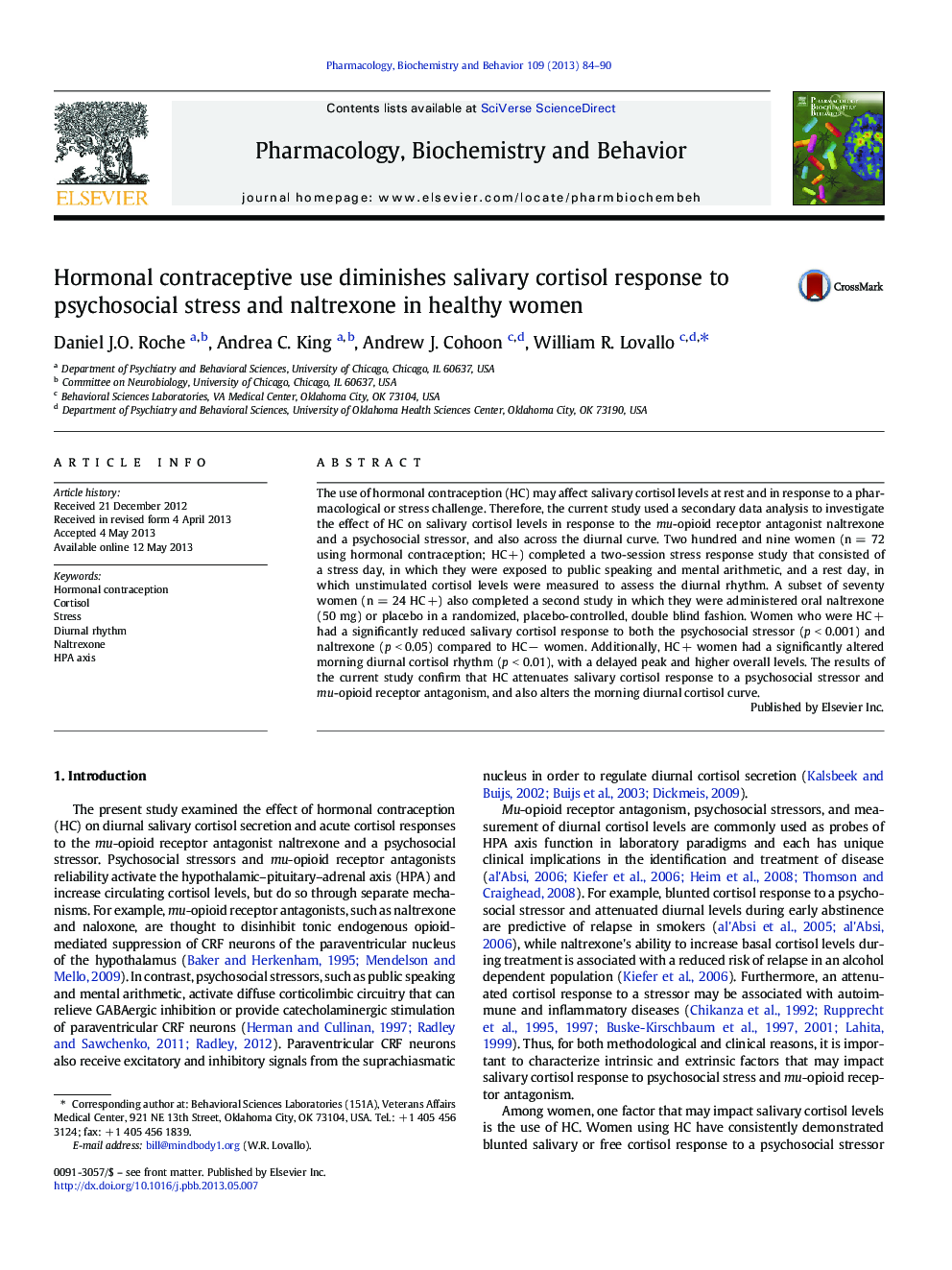| کد مقاله | کد نشریه | سال انتشار | مقاله انگلیسی | نسخه تمام متن |
|---|---|---|---|---|
| 2013035 | 1541874 | 2013 | 7 صفحه PDF | دانلود رایگان |

• The effects of hormonal contraception (HC) on response to naltrexone and a stressor were examined.
• Women using HC had a blunted cortisol response to naltrexone and the stressor compared to non-users.
• HC did not affect subjective or cardiovascular response to either stimuli.
• HC users also had a delayed and heightened diurnal cortisol rhythm compared to non-users.
The use of hormonal contraception (HC) may affect salivary cortisol levels at rest and in response to a pharmacological or stress challenge. Therefore, the current study used a secondary data analysis to investigate the effect of HC on salivary cortisol levels in response to the mu-opioid receptor antagonist naltrexone and a psychosocial stressor, and also across the diurnal curve. Two hundred and nine women (n = 72 using hormonal contraception; HC +) completed a two-session stress response study that consisted of a stress day, in which they were exposed to public speaking and mental arithmetic, and a rest day, in which unstimulated cortisol levels were measured to assess the diurnal rhythm. A subset of seventy women (n = 24 HC +) also completed a second study in which they were administered oral naltrexone (50 mg) or placebo in a randomized, placebo-controlled, double blind fashion. Women who were HC + had a significantly reduced salivary cortisol response to both the psychosocial stressor (p < 0.001) and naltrexone (p < 0.05) compared to HC − women. Additionally, HC + women had a significantly altered morning diurnal cortisol rhythm (p < 0.01), with a delayed peak and higher overall levels. The results of the current study confirm that HC attenuates salivary cortisol response to a psychosocial stressor and mu-opioid receptor antagonism, and also alters the morning diurnal cortisol curve.
Journal: Pharmacology Biochemistry and Behavior - Volume 109, August 2013, Pages 84–90